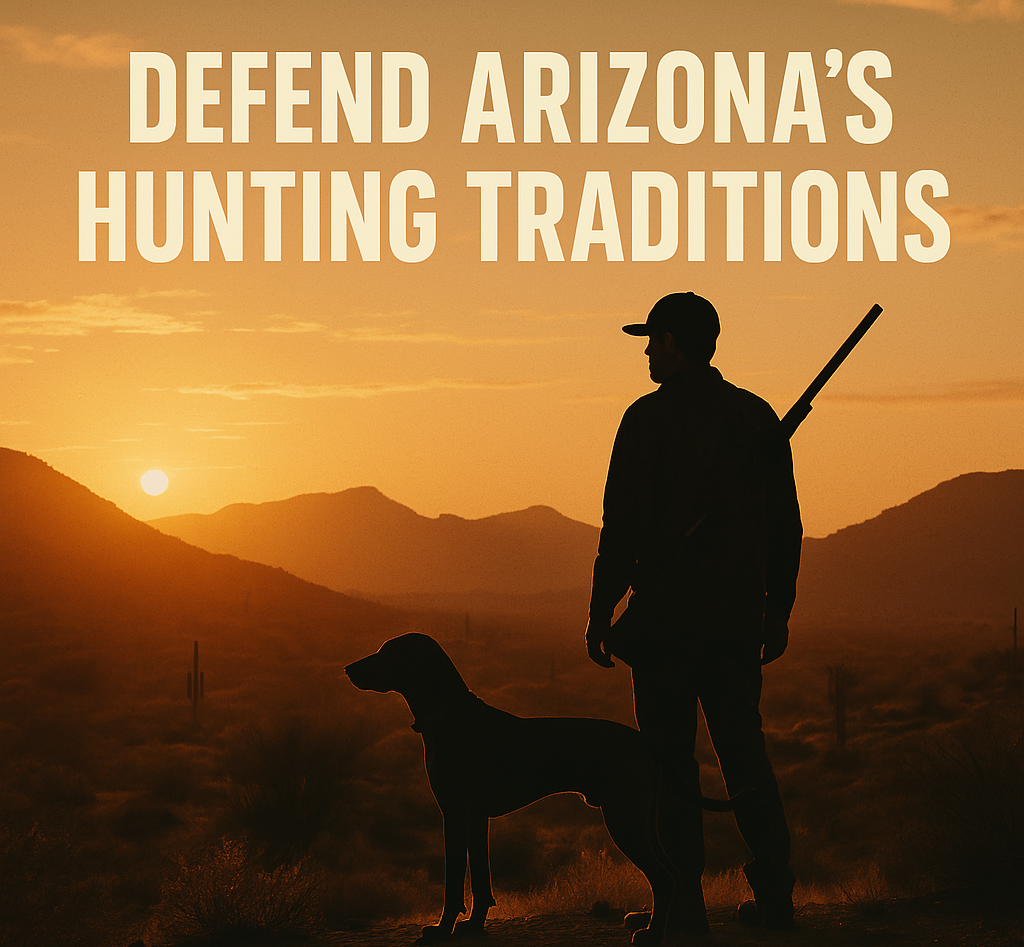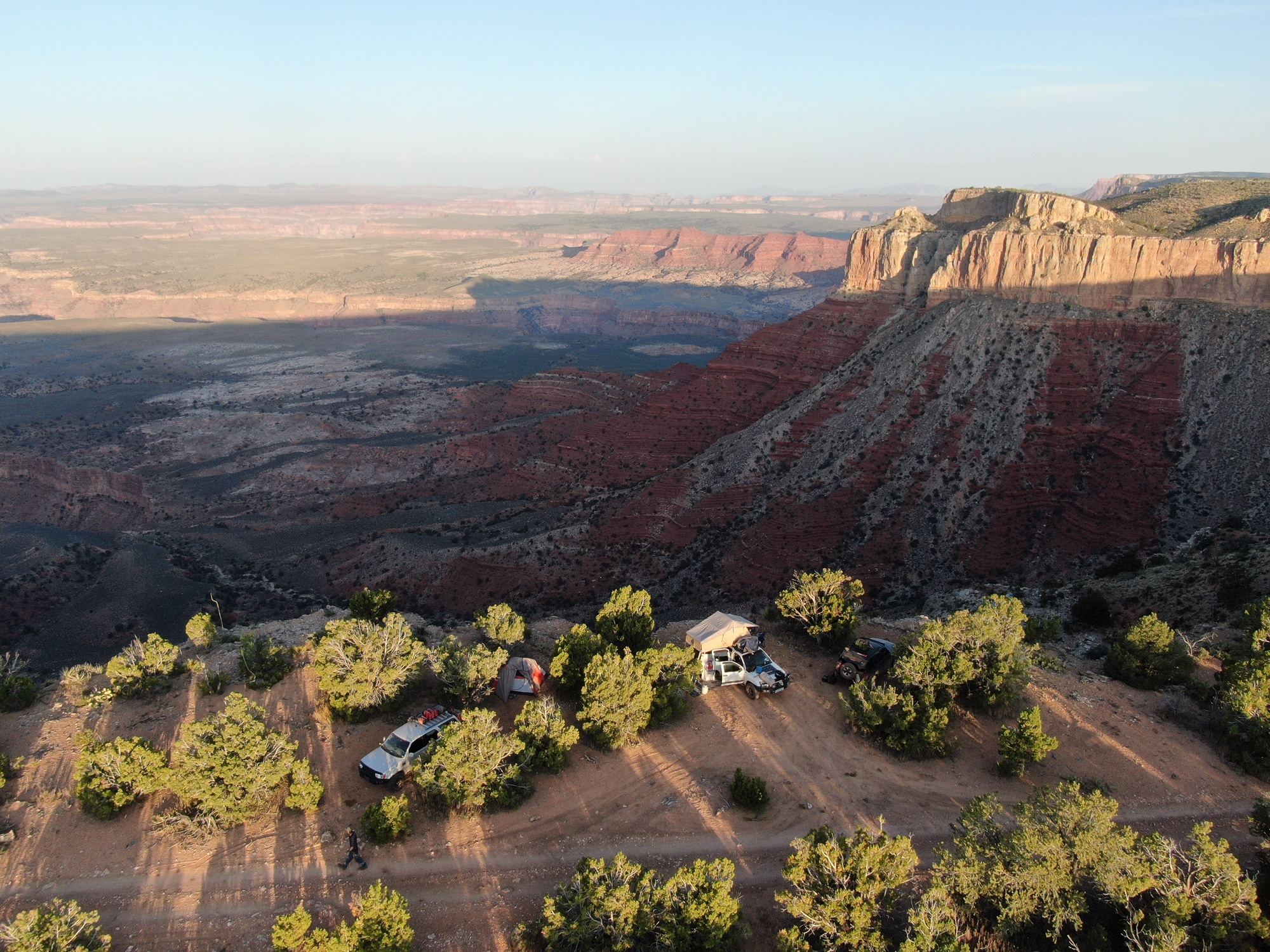Your cart is currently empty!
Republican Senator Frank Carroll from district 23 has introduced a Bill that will increase the OHV weight limit requiring certain motorized vehicles under 3,500 lbs to acquire an Arizona Off Highway Vehicle (OHV) sticker. The bill simply amends Arizona Revised Statutes 28.101, 28.1177, and 28.5801 to change the weight limits from 2,500 to 3,500 lbs.
This weight limit determines what vehicles are required to purchase an Off Highway Vehicle sticker to travel roads on public lands. In addition, it determines what defines an OHV under state law. If the weight limit is increased, many purpose built vehicles could fall under the state’s definition of a recreational Off Highway Vehicle.
During testimony in the Senate Transportation and Technology Committee, Lobbyist and Director Of State Government Affairs for Polaris Industries, Stephen Burke, explained the changes are needed to accommodate upcoming hybrid models that are expected to increase in weight. He also argued that Polaris customers want additional accessories from the factory, and also add aftermarket accessories that exceeds the state’s current 2,500 lb threshold.
The overwhelming majority of Senate Republicans voted in favor of the bill. Whereas, most Senate Democrats opposed the bill, asserting the weight increase will allow manufacturers to add additional weight to the machines, thus damaging the environment.
Redefining state OHV laws
If amended, ARS 28.101 will redefine a recreational Off Highway Vehicle as follows:
3. “All-terrain vehicle” means either of the following:
(a) A motor vehicle that satisfies all of the following:
(i) Is designed primarily for recreational nonhighway all-terrain travel.
(ii) Is fifty or fewer inches in width.
(iii) Has an unladen weight of one thousand two hundred pounds or less.
(iv) Travels on three or more nonhighway tires.
(v) Is operated on a public highway.
(b) A recreational off-highway vehicle that satisfies all of the following:
(i) Is designed primarily for recreational nonhighway all-terrain travel.
(ii) Is eighty or fewer inches in width.
(iii) Has an unladen weight of three thousand five hundred pounds or less.
(iv) Travels on four or more nonhighway tires.
(v) Has a steering wheel for steering control.
(vi) Has a rollover protective structure.
(vii) Has an occupant retention system.
The bill will also amend ARS 28.1177 which requires motorized vehicles that fall under the definition of “All Terrain Vehicle” or “Off Highway Vehicle” to purchase an OHV sicker.
If amended, ARS 28.1177 will read as follows:
A. A person shall not operate or allow the operation of an all-terrain vehicle or an off-highway vehicle in this state without either a resident or nonresident off-highway vehicle user indicia issued by the department if the all-terrain vehicle or off-highway vehicle meets both of the following criteria:
1. Is designed by the manufacturer primarily for travel over unimproved terrain.
2. Has an unladen weight of three thousand five hundred pounds or less.
Similarly, ARS 28.5801 places a $3 vehicle license tax on OHVs and will be amended under the Bill to read as follows:
E. The vehicle license tax for an all-terrain vehicle or off-highway vehicle as defined in section 28-1171 is $3 if the all-terrain vehicle or off-highway vehicle meets both of the following criteria:
1. Is designed by the manufacturer primarily for travel over unimproved terrain.
2. Has an unladen weight of three thousand five hundred pounds or less.
It is necessary to articulate the possibility of the distinction between OHVs and SUVs going overlooked in favor of applying OHV regulations on all vehicles capable of traveling off improved roads. The line “designed by the manufacturer primarily for travel over unimproved terrain” can easily be misinterpreted by agencies that govern the use of roads on federal lands. It is a fine line that leaves this distinction up for interpretation and isn’t sufficient to make a clear distinction between OHV vehicles and highly modified SUVs.
Multiple state agencies already produce policy papers as if UTVs and SUVs are in the same category. Weight limits are applied, but no exemption is left for SUVs and pickup trucks. Instead, they apply OHV regulations to all vehicles that are capable of traveling off improved roads. For example, the Arizona Trails 2015, A Statewide Motorized and Non-motorized Trails Plan states “any motorized vehicle used to travel over unpaved roads and trails is an off-highway vehicle.” Therefore, this change could be imposed on regular motorized street-legal SUVs and pickup trucks that are under 3,500 lbs. It is also very likely that custom-built, purpose-built, restored, or re-manufactured 4×4 vehicles could be included in the OHV category.
For example, the following table shows the manufacturer’s curb weight for various popular Jeeps that could be affected by this new legislation. It’s important to note, however, that state OHV laws use the term “unladen weight” referring to the weight of the vehicle, including all permanently fixed aftermarket accessories, but without passengers and cargo.
| Vehicle | Curb Weight |
|---|---|
| Jeep XJ | 3,357 lbs |
| Jeep TJ | 3,241 lbs |
| Jeep YJ | 2,855-3,241 lbs |
| Jeep CJ | 2,665 lbs |
This is not a complete list. Other 4×4 vehicles that weigh under 3,500 could be included with the addition of an aftermarket “roll over protective structure,” ultimately penalizing motorized users for utilizing safety equipment. UTVs however, will not be negatively affected by SB1100 because there are no UTVs that exceed the current standard. The heaviest UTV on the market weighs well below the current 2,500 lb threshold. Whereas the 2023 Polaris Ranger XP Kinetic Hybrid UTV weighs around 1,730 lbs. Slightly more than its Gasoline counterpart.
MUST SEE – Watch lobbyists and politicians explain why they want an increased weight limit on Arizona’s OHV laws.
This cannot be dismissed by motorized users
Under this new standard, many popular 4×4 vehicles could fall under the state’s definition of a Recreational Off Highway Vehicle. Anti-access groups have been trying this for a long time. This is nothing new. The only way to ensure OHV laws and regulations are not imposed on SUVs and Pickup Trucks is to specifically exempt them from OHV requirements in this legislation.
According to current studies, SUVs and pickup trucks make up 18% of the motorized OHV community in Arizona. Whereas, the remaining overwhelming majority of our community falls within the recreational off highway vehicle laws and already contributes to the Arizona OHV fund.
The requests of Polaris are questionable. However, it is clear that the UTV community would benefit from this legislation by acquiring the legal right to add additional weight and stay within the law. It could further benefit the motorized 4×4 community with a clear and conscious exemption for SUVs, Pickup trucks, and custom-built automobiles.
If the weight limit is increased, at a minimum, the bill should:
- Make a clear distinction between recreational off highway vehicles, and the thousands of street-legal modified vehicles on Arizona roads that could be affected.
- Clearly exempt SUVs, Pickup Trucks, and other motor vehicles from the state’s OHV laws.
- Exempt modified SUVs and pickup trucks that may be restored or re-manufactured by the owner.
- Exempt purpose-built SUVs, Trucks, and buggies.
- Exempt SUVs, pickup trucks, and buggies that are trailered to the recreation destination.
Please Take Action!
SB1100 has passed the Arizona Senate and is moving on to the Arizona House of Representatives. We must take action and voice our opinion on SB1100.
Below you can send an email to the House Transportation and Infrastructure Committee and the House Rules Committee. Please urge them to vote NO on SB1100.
Comments on SB1100
We Need Your Help To Keep Our Backroads Open!
Please become a member today!








